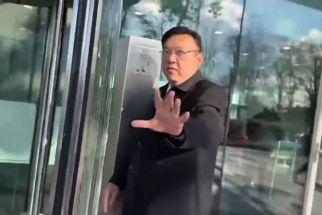‘Storm-proof’

“We cannot solve our problems with the same thinking we used when we created them” – Albert Einstein.
After the destructive hissy fit of Typhoon Glenda, I had to drive out to Tagaytay City to conduct my regular lecture at the Development Academy of the Philippines early last Thursday morning. The route took me through the SLEX, Eton City, Alfonso-Cavite and finally Tagaytay. It was a perilous drive with many roads mostly blocked by fallen trees, electric posts and power lines. This typhoon clearly hated trees because this one has the distinction of taking down more trees than any recent typhoon I’ve experienced except maybe for Super storm Yolanda.
Upon reaching the D.A.P Center, I tried calling or texting my wife to advise her of my safe arrival but there was no signal and if you saw bars on your mobile it would last all of 5 seconds and that went on for the next 2 days. I like everyone else accepted that as part of the typhoon damage. Then in the two days I was lecturing on Media, Communications, Brand Management and Crisis management the electricity was supplied via power generators. After the event, I took the road down to Talisay town, to the Star toll and visited our mini farm in the dark. With no electricity, hundreds if not thousands of trees broken, dodging huge branches and almost invisible power lines, the experience triggered scenes from Tacloban post Typhoon Yolanda. And they say that future storms will get stronger and things will get worse.
With an average of 20 typhoons a year, one would think that with the amount of experience, we should be better in dealing with typhoons and calamities by now, but we are not. We have consistently focused on “Disaster Preparedness” as in stock piling food and water, preparing relocation centers, evacuating people and sending emergency response teams. Instead of operating on Disaster Preparedness I realized that we have to start thinking about “Storm-proofing.”
When the power lines in our Lipa residence got cut, my wife Karen suggested that we should lay underground cables next time so that fallen trees and branches don’t cut or disconnect them. With that idea, I think it’s time to pass laws that physically separate power lines from tree lines. For as long as I can remember trees and electricity don’t work well together. We always have to radically cut down tree branches or dwarf them to avoid electric lines or not plant them in deference to power lines. So why not designate one side of the street for trees and the other side for electric posts/cables. That way we can still have tree lines that won’t be a threat to cables. Meralco may resist at the beginning but the reduced cost in pruning, emergency response, clearing and repair of cut lines caused by fallen trees must surely be worth it in the long term.
Of course all barangays will have to pass mandatory laws on pruning trees, shrubs and vegetation that may grow out and become liabilities to people especially during storms. Even on a sunny day, I hate it when I have to dodge or avoid plants, bushes or trees that homeowners don’t bother to prune or take care of.
Another new approach would be to install solar lights and solar power sources to drive lights and CCTV in key locations. After Typhoon Yolanda, the officials of Caloocan City realized that if they did not adopt the new technology of solar power they will constantly have problems to keep their CCTV cameras running after typhoons. In Palawan and I think in Bohol, I saw a lot of places using solar powered street lights that saved a lot of money for local government and proved reliable and cheaper than the traditional lighting powered by local companies. Also fewer cables.
Then there is the matter of mobile signal and Internet service. I’ve said it time and again, Congress and Senate especially the Office of the President needs to issue an order or a law that fast tracks the building of multiple cell sites and exempt these from local government interference, permits and taxation, etc. as a matter of National Interest. Connectivity and communications are a major priority in times of calamity and all the present day obstacles must be put to a stop. Many exclusive villages filled with overly intelligent people don’t want radiation and ugly structures in their midst but when their mobile calls get dropped they bitch like someone unplugged their mother’s respirator or life support!
Someone pointed out that the higher number of towers or repeaters in a given area results in lower power outputs because of efficiency of distribution therefore reducing the possible strength of any radiation (a concern or fear that to this day has never been established). Within 50 meters and 200 meters of my Lipa house there is a Globe cell site and a Smart/Sun cell site. A lot of people have died in the area from vehicular accidents. So far no one has talked about radiation!
Lastly, the government and LGUs need to develop a dedicated bi-lingual Emergency Broadcast Channel for AM/FM radio as well as Television. This must be supported by stand-alone communications (Back-pack HF radio transmitters) from all the regions as well as the AFP and the PNP. The stand alone units will be over and above mobile communications which are often the first to shut down during calamities. The purpose of the Emergency Broadcast is to centralize information, announcements, appeals as well as warnings concerning natural calamities, conditions etc. Half of the problem with our delayed action or response is lack of accurate and quick information and if government wants to be a step ahead of private media, they have to have their own and one that works.
* * *
E-mail: utalk2ctalk@gmail.com
- Latest
- Trending





























